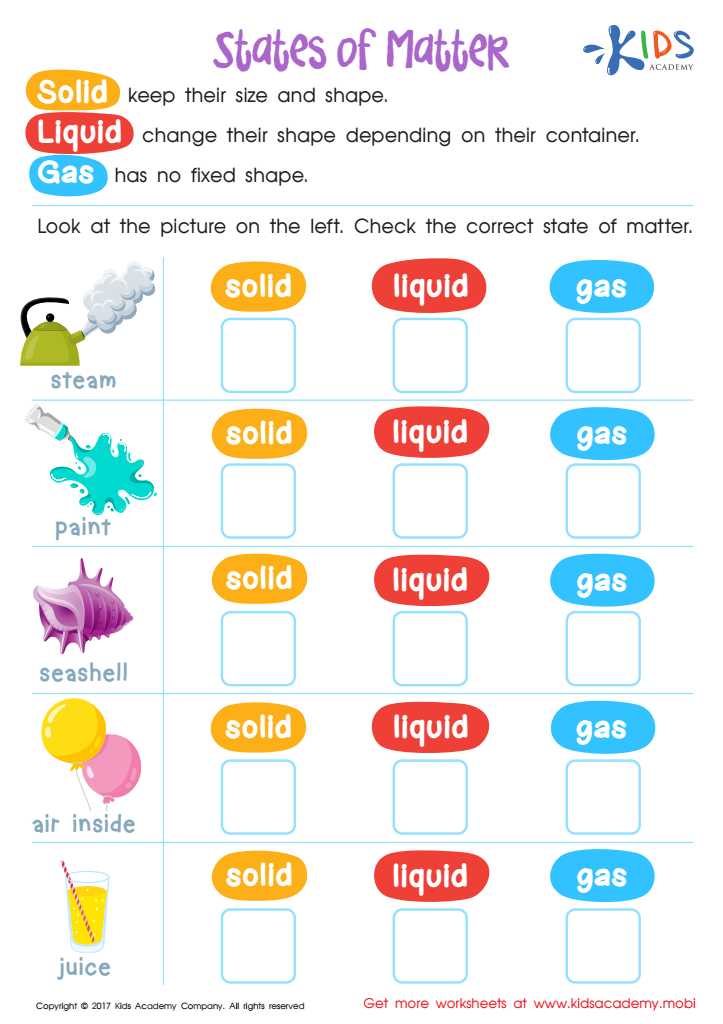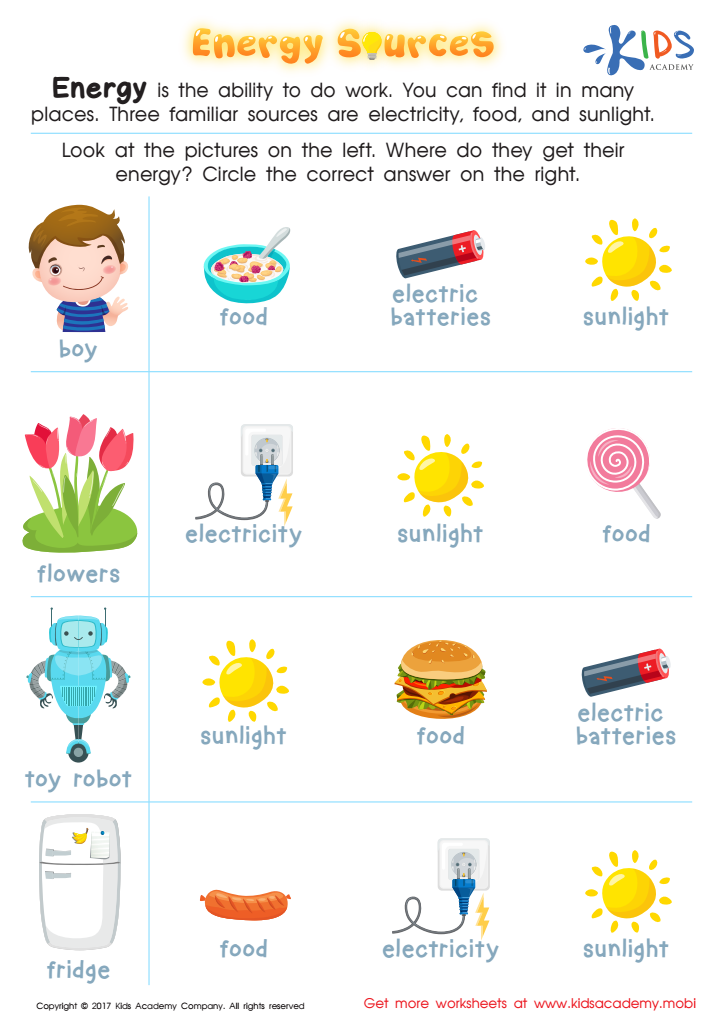Physical Science Worksheets for Ages 3-9
3 filtered results
-
From - To
Discover engaging Physical Science Worksheets designed for ages 3-9 at Kids Academy! Nurture your child's curiosity with interactive activities that explore the wonders of the natural world. Our expertly crafted worksheets cover a spectrum of essential concepts including gravity, motion, and energy. Each activity combines fun illustrations with easy-to-follow instructions, ensuring an enjoyable learning experience for young minds. From sorting objects by state of matter to identifying energy sources, our resources are tailored to boost foundational science knowledge. Spark a lifelong passion for discovery with our educational and entertaining worksheets. Start your child's science adventure today!


Physical Science: States of Matter Worksheet


Sink or Float Printable


Energy Sources Printable
Parents and teachers should care about physical science for children ages 3-9 because it lays the foundation for critical thinking, curiosity, and lifelong learning. Introducing physical science concepts at an early age gears young minds to explore, ask questions, and develop an understanding of the world around them. At this age, children are naturally curious and eager to experiment; engaging them in physical science activities nurtures this sense of wonder and encourages exploration.
Physical science introduces basic principles like gravity, force, and energy, which are fundamental concepts in understanding more complex scientific theories later in life. This early exposure can boost problem-solving skills, scientific reasoning, and even language development as kids learn to describe their observations and findings.
Moreover, early engagement with physical science builds confidence in tackling sometimes intimidating subjects. Young children gain a sense of accomplishment from conducting simple experiments, laying a positive groundwork for future academic pursuits. It can also foster a collaborative learning environment, as children often enjoy sharing discoveries with peers or family members.
Lastly, fostering an interest in physical science from a young age helps in creating a scientifically literate society, where individuals can make informed decisions. By nurturing an interest in physical science, parents and teachers can contribute significantly to a child's intellectual and emotional growth.
 Assign to My Students
Assign to My Students















